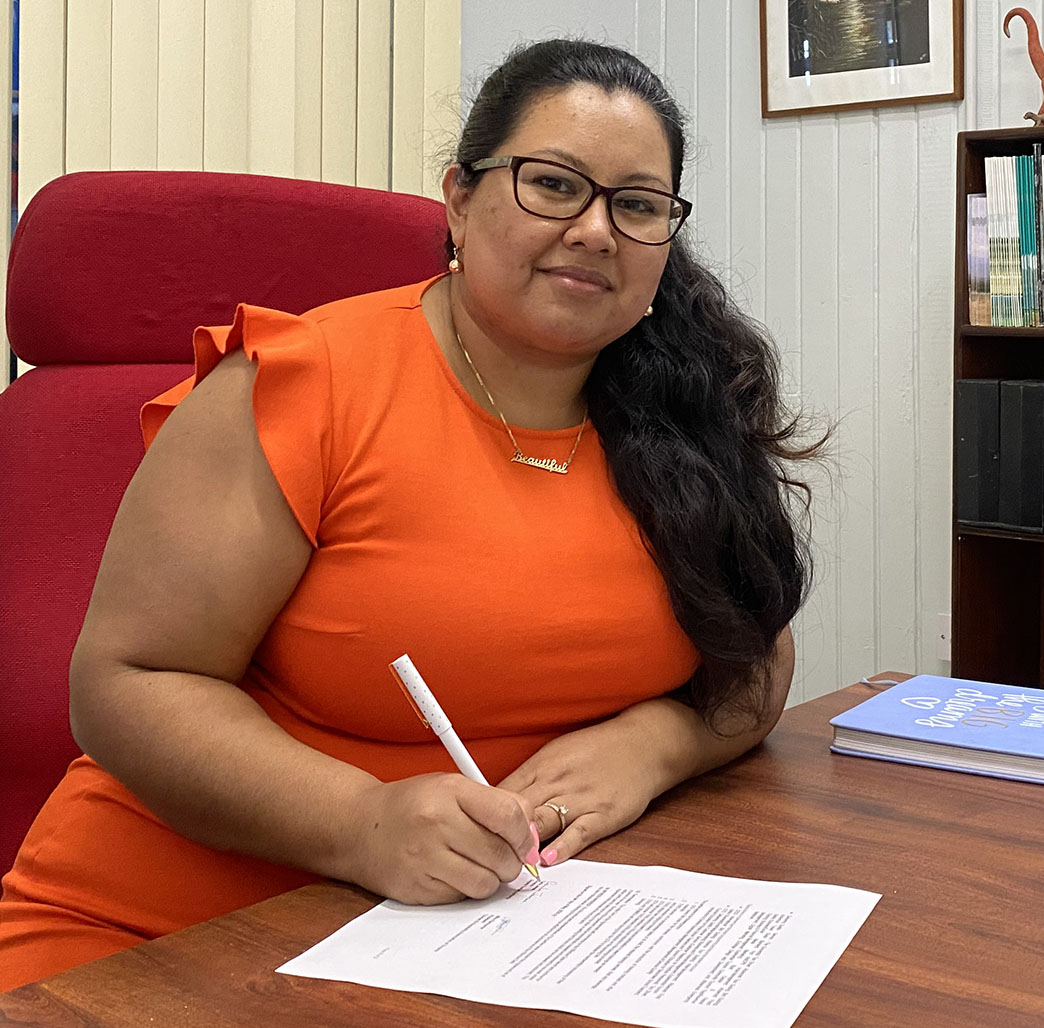Faced with the likelihood that international tourist traffic may not return until next year as a result of the COVID-19 pandemic, the Guyana Tourism Authority (GTA) is considering tapping into the domestic and regional market to ensure the survival of the tourism sector.
The global coronavirus outbreak has impacted tourism sectors severely all around the world after countries began closing their borders in response to the rapidly spreading disease. Guyana has recorded 114 cases thus far, including 10 deaths.
During a virtual meeting hosted by the Ministry of Business yesterday, Director of the GTA Carla James told participants they have acknowledged the fact that the world will not be the same post-pandemic. As a result, she said, the GTA has started adapting to the new reality and is currently looking at ways to ensure the survival of the tourism industry in the country.

She said GTA is hoping to strengthen the regional tourism administrative structure and enhance communication links between the coastal and hinterland regions. It is also hoping to forge critical partnerships for tourism success and will be lobbying for financial support for the industry.
James noted that they have considered the fact that international travel may remain dormant for an indefinite period but in order to “keep tourism alive in the current crisis,” focus will be placed on regional and domestic tourism.
With this in mind, she stated regional health and safety protocols will have to be put in place for all airlines to follow. She suggested that a regional medical certificate that is recognised within the CARICOM region should be issued two days prior to travel as an extra precautionary measure as social distancing on an aircraft is impossible.
However, the Chief Medical Officer Dr. Shamdeo Persaud said that exit certification will depend heavily on the visiting population’s ability to have testing done and for check-in procedures to incorporate those necessary health certificates to prove that a person is free from infection. He added that the only instance in which Guyana’s laws require such a certificate is when exporting or importing human remains. He noted that this kind of discussion is ongoing at the level at CARPHA and the Caribbean Tourism Organization.
Incentivised
Meanwhile, James noted, that regional tourism needs to be incentivised by the reductions of travel taxes and passenger fees. Without these reductions, she added, persons will have no interest in travelling given the situation created by the pandemic.
It was revealed that although the CEO of LIAT mentioned in 2018 that the regional airline hadn’t had a fare increase in years, the cost to the passenger keeps rising as a direct result of travel taxes and passenger fees. This poses a major issue if the regional market is to find regional travelling appealing considering that if a family of five decided to travel, they would be paying US$560 in addition to their base fees.
In Guyana, she said, there is no doubt that domestic tourism should be incentivized, considering that the country is much larger than many Caribbean island states and is richly diversified. “Guyana’s strength is accessing niche markets and therefore our eco, adventure and cultural tourism product is well positioned for accommodating small numbers and ideal for social distancing. Therefore it is time for regional and domestic tourism to emerge and take centre stage,” she added.
The Director of sales and marketing of the Courtyard Marriot in Suriname, Remy de Miranda, agreed with James, while noting that the situation is the same in Suriname.
He noted that although there are no active cases of coronavirus in the country, like Guyana air fares and unfair cancellation policies are in place, causing persons to have second thoughts about travelling around the country even though it is a “reasonably safe destination.”
He suggested that temporary discounts and fair cancellation policies along with COVID-19 protocols in place be implemented to ensure that the interest in travel be kept alive.
In this regard, the Director General of Civil Aviation Authority Egbert Field stated that in order to restore tourism, new tour packages targeting local companies and individuals should be developed. In addition he encouraged GTA to introduce subsidized packages for Guyanese citizens.
He revealed that JetBlue contacted him about two weeks ago and told him that they are cancelling the launch of the airline until the spring season of 2021 after which he urged the GTA to restart their plan to include a common approach towards health during the pandemic.
Apart from that, James noted that the Guyana tourism sector’s weaknesses are now the country’s strength. She noted that crowded tourism destinations will now become less popular. “Guyana is the ideal place to travel post COVID-19. We have a unique offer because we offer something really special,” she stated.
Advantages
James noted that the tourism industry is currently facing a number of challenges, such as the closures of necessary suppliers, rates uncertainty, the lack of promotional or discounted rates and favourable conditions and the question of “is Guyana safe?” Despite these challenges, she said, Guyana has competitive advantages, such as being a less travelled destination, having less crowded small groups, and being perceived to be safe, clean and optimally ‘green’ and pristine.
Further, she stated that GTA has been making use of digital platforms to keep the general public informed via the GTA Facebook page, a WhatsApp group, email blasts, press releases and provision of business advice and recommendations to the sector on how to manage the changes faced in a business environment.
She added that as they have been promoting a “postpone, don’t cancel” policy, the messages and tone of the posts on social media changed, inspiring travel but cognizant of the time.
They have also created videos to encourage people to think about Guyana as their next vacation destination and have developed online training for the trade. In addition, they are facilitating webinars, short videos to teach people about Guyana with activities such as backyard birding.
De facto Minister of Public Communications Cathy Hughes advised that technology can be used to foster “great creativity” and highlighted that the ministry has ensured that many indigenous communities have access to the internet, while noting that many foreigners prefer to visit the hinterland areas during their time in Guyana.
However, given the state of affairs in the country, she stated that virtual tours of remote areas in Guyana can boost tourism and give persons “a taste of the real thing.” She explained that having internet access, especially in remote areas, can positively impact the industry by allowing a potential tourist to have an idea of what to expect in the country.
This, she said, will encourage tourists to start planning a trip to the country so they can come and enjoy the product or service of the Guyanese host. “In a pandemic virtual reality tourism would be the ideal way to go,” she stated.






